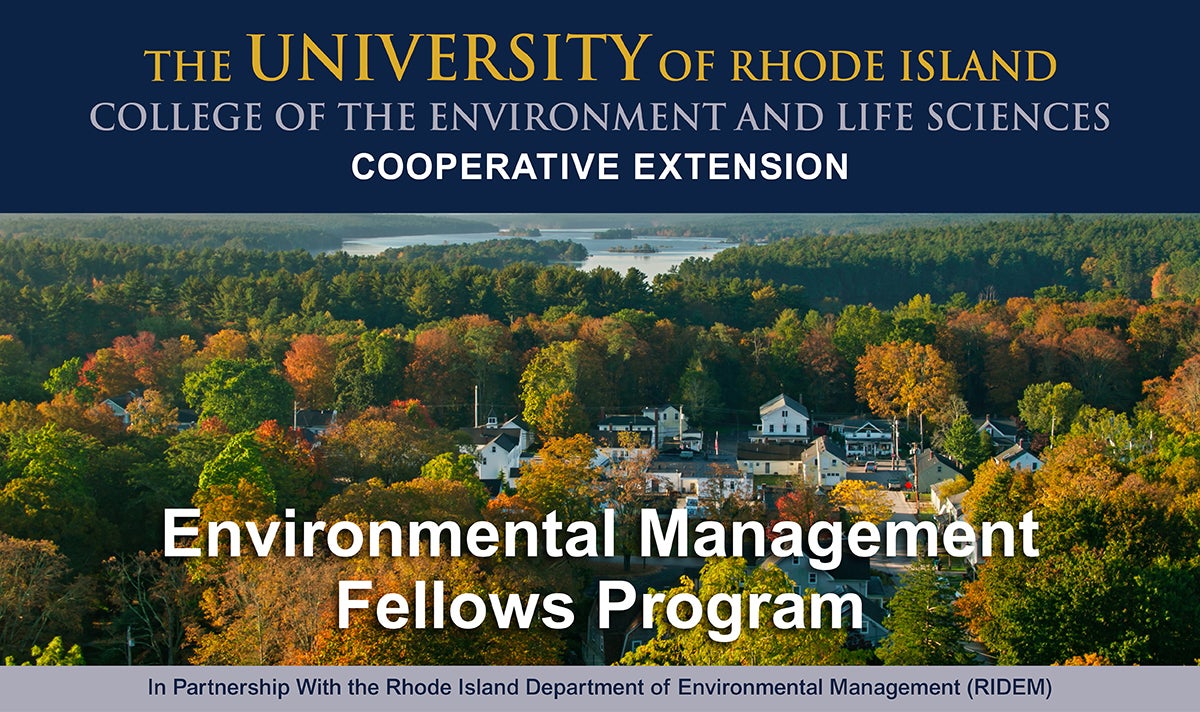After Rhode Island’s shoreline access law, what’s next?
KINGSTON, R.I. – Oct. 8, 2025 – These recent sunny days bring the last chances to access the Rhode Island coastline before chillier weather sets in, though that won’t keep Jesse Reiblich away. When he’s not in or around the water — as an avid surfer, diver, and sailor — the University of Rhode Island assistant professor is working on a project to assess how effective Rhode Island’s shoreline access policies are, in a project funded by the National Sea Grant Law Center.
An attorney who teaches in URI’s Department of Marine Affairs, Professor Reiblich is writing and presenting on an important topic in the Ocean State: How can access to its shorelines be protected if the boundary is unclear?
Public access to the coast is threatened by a number of factors, including climate change, development, and conflicting coastal uses. Rhode Island’s Constitution guarantees certain coastal access privileges, but these rights have been undermined by judicial decisions that define the “shore” in limited ways.

In response to these discrepancies, Rhode Island’s legislature two years ago passed a new shoreline access law that enshrines the right of the public to access 10 feet above the mark of the last high tide. Professor Reiblich says this new law functions as a coastal resilience law. Now, he’s overseeing a research project aiming to evaluate the new law’s effectiveness, hoping to share research findings with the government agencies responsible for implementing the law.
Along with URI colleagues Melva Treviño Peña and Nathan Vinhateiro, the trio will assess whether the shoreline’s newly defined demarcation is sufficient for ensuring public coastal access and enhancing the public’s ability to access the shore. They hope to determine whether Rhode Island’s “shoreline” definition is legally sufficient or whether a new delineation would be legally preferable, for users, property owners, and regulators, as well as in the face of rising seas, eroding coastlines, and other effects of climate change.
Professor Reiblich believes that Rhode Island stands out within New England for protecting public ocean access: “Rhode Island’s effort to protect shoreline access in this new law and in its Constitution is among the strongest in the region,” he says.
The Arizona native who grew up in Florida first came to marine affairs through the surfing world, ultimately moving from law practice to academia. His legal background informs his current work and he is teaching Introduction to Marine and Ocean Law at URI this fall.
Prior to coming to URI in 2022, Professor Reiblich advised on coastal law in Virginia and did judicial clerkships in the U.S. Virgin Islands and on the Island of St. Croix. He was named a rising environmental leader by Stanford University and is a volunteer member of the legal issues team for the Surfrider Foundation.
Ocean access
Sea-level rise is perhaps the primary existential threat to coastal access due to changing climates. Existing legal frameworks, which are reactionary and rely on predictability, are typically ill-equipped to safeguard public beach access from rising seas and progressive erosion.
Professor Reiblich recently co-authored a study with colleagues from New Zealand and Brazil that appeared in last month’s issue of Marine Policy. The study examined public access to coastal environments and resources and the challenges surrounding such access. The article also presents examples that illustrate the difficulties in addressing them in real-world contexts.
He says that public coastal access is being threatened by a variety of stressors.
While access issues often make news, academic literature explaining the contributing factors is scarce. There are also few analyses of impacts or options to address long-term implications, which he hopes to address in his work.
Coastal hazards complicate the management of public coastal access, he says. The primary management concerns are likely to arise from physical damage to land, property or infrastructure during periodic extreme events associated with high winds, large swell, coastal flooding, and erosion. Such natural extremes are predicted to become more intense with climate change, but in many cases, it is the human responses to hazard events, rather than their periodic occurrence, that can exert the biggest effect on outcomes.
Coastal development patterns pose a significant potential threat to coastal access unless access issues are proactively identified and incorporated in coastal zone management planning processes. New subdivisions and ownership changes can adversely affect access to public space, and increasingly crowded and developed coastlines have prompted some property owners to use “ghost chairs” to deter the public from using beaches, or posting misleading “no trespassing” signs to deter beachgoers.
These examples of access closures highlight the importance of development approaches that integrate and prioritize coastal access points — something he thinks about often as he regularly makes his way to the Rhode Island coastline, with other residents of his new adopted home state.
Latest All News
- We Lived in the Woods: A Memoir From a Bygone EraWe Lived in the Woods: A Memoir From a Bygone Era Alexander B. Blunt, M.A. ’11 (2025)
- What If? An 85 Year Journey of the Confederate States of AmericaWhat If? An 85 Year Journey of the Confederate States of America Arthur S. Bobrow ’64 (2025)
- Next URI Honors Colloquium lecture to ask, ‘What Can We Afford?’KINGSTON, R.I. – Oct. 7, 2025 – In today’s political environment, it’s critical to understand how public policy intersects with United States colleges and universities. Higher education policy expert Dominique J. Baker will discuss how education policy shapes access, equity, and success for minoritized students in higher education, as the University of Rhode Island continues […]
- URI professor examines use of technology to monitor patients after joint replacementKINGSTON, R.I. – Oct. 6, 2025 – Joint replacement surgery has advanced dramatically thanks to new materials, techniques, and technology. Procedures are safer, less invasive, and require less recovery time. While there have also been great advancements in technology used to remotely monitor how patients recover from joint replacement surgery, also known as arthroplasty. However, […]
- Applications due Oct. 24 for new environmental management fellowship programKINGSTON, R.I. — Oct. 6, 2025 — The University of Rhode Island Cooperative Extension is excited to announce the launch of the Environmental Management Fellows Program for students at URI and the Community College of Rhode Island. Cooperative Extension’s newest fellowship program builds on the success of URI’s popular and well-known Energy Fellows Program and […]
- URI Gravity Research group contributes to major black hole discovery, expands astrophysics programKINGSTON, R.I. – Oct. 6, 2025 – In 1915, Albert Einstein’s theory of relativity predicted that black hole collisions could only be detected from Earth by searching for gravitational waves. In September 2015, about a century after Einstein’s prediction, black holes were observed merging for the first time by the Laser Interferometer Gravitational-Wave Observatory (LIGO). […]













